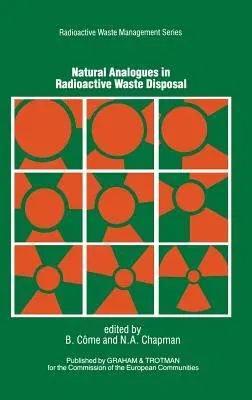In order to validate predictive models of the very long-term processes
which affect the performance of radioactive waste repositories, there
has been an increased interest in the information and understanding
which can be obtained from studying similar mechanisms in natural
systems. These "natural analogues", as they are known in the jargon of
waste management, have been studied sporadically for many years, but
there has been a considerable rejuvenation of interest in the last four
years, possibly owing to the fact that performance assessment methodolo-
gy is gradually maturing to the point where it needs the kind of support
which analogues can offer. Since 1982, the Commission of the European
Communities has been involved in specific work on natural analogues in
the framework of its activities on radioactive waste management,
principally within the MIRAGE project which concerns migration of
radionuclides in the geosphere. As a consequence, the Commission took
the initiative, in 1985, of establish- ing a Natural Analogue Working
Group (NAWG) whose members can benefit from the overall expertise
available for managing their own natural analogue research programmes.
In this group, modeller' s requirements and the results of field
research are exchanged at regular intervals. A number of wide-ranging
investigation programmes, both on national and international scales. are
currently underway or being initiated, and several of these have been
discussed recently at the NAWG.

